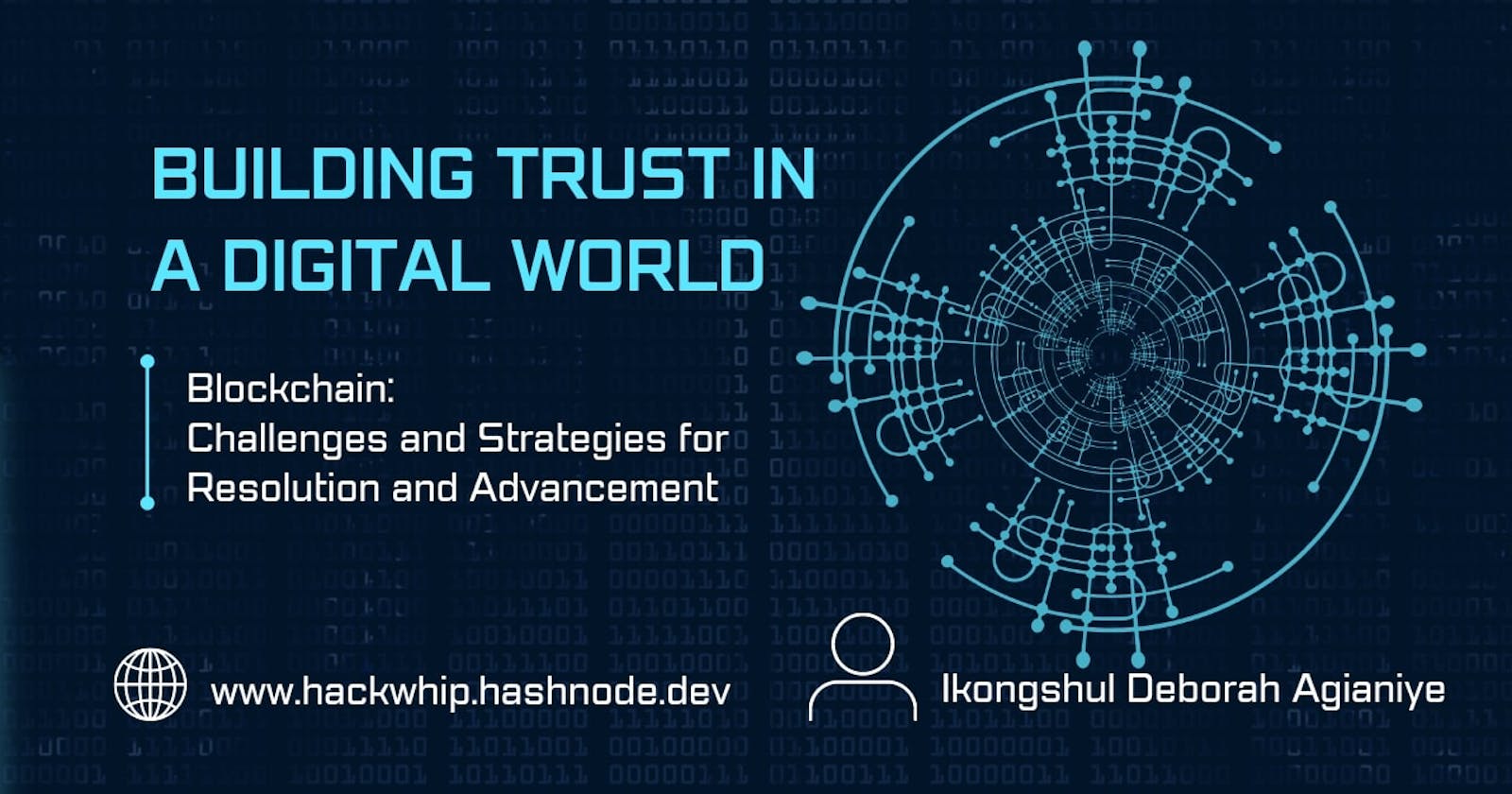The Blockchain technology, while promising, also faces several challenges and problems that need careful consideration. These problems are listed below:
Scalability: Scalability is a significant concern as the number of transactions and participants increase, leading to potential bottlenecks and slower processing times.
Energy Consumption: Energy Consumption is an issue with Proof of Work (PoW) consensus, demanding substantial computational power and resulting in high energy consumption. This environmental impact raises sustainability issues and calls for alternative energy-efficient consensus mechanisms.
Interoperability: The lack of standardized protocols and formats hinders seamless communication and data exchange between different blockchain platforms. Achieving interoperability is crucial for the effective utilization of blockchain across various industries.
Regulation and Compliance: Regulation and Compliance pose challenges due to the decentralized nature of public blockchains. It can be dififcult to identify and hold accountable those who may misuse the technology for illegal activities. Thus, striking a balance between privacy and accountability remains a complex task for enforcing laws.
Security Concerns: While the blockchain boasts about strong cryptographic security, it is not immune to attacks. Smart contract vulnerabilities and potential 51% attacks on smaller networks highlight the need for constant vigilance and security audits.
Governance and Consensus: Decentralized governance can lead to conflicts and difficulties in making collective decisions. Disagreements over protocol upgrades or network changes may result in contentious hard forks and community fragmentation.
Data Privacy: While blockchain offers transparency, ensuring data privacy can be challenging, especially in public blockchains. Sensitive information on the blockchain might be accessible to all participants, which can raise privacy concerns.
Legal Challenges: The legal frameworks surrounding blockchain technology are still evolving, creating uncertainty around issues like smart contract enforceability, intellectual property rights, and jurisdiction in cross-border transactions.
Adoption Barriers: Implementing blockchain solutions may require significant changes to existing infrastructures, which can be costly and time-consuming. Convincing traditional businesses to adopt blockchain technology also necessitates overcoming resistance to change.
User Experience: Blockchain interfaces and wallet management can be intimidating for non-technical users, hindering mass adoption. Improving user experience and simplifying interactions are essential to attract a broader user base.
Addressing these challenges requires collaboration among stakeholders, ongoing research, and technological advancements. Despite the hurdles, resolving these issues will pave the way for the blockchain's wider adoption and the realization of its transformative potential in various domains.
Addressing the Challenges associated with Blockchain
Efforts to address the challenges associated with blockchain technology have been ongoing, with various initiatives aimed at improving scalability, energy efficiency, security, governance, and overall usability. Some of these efforts include:
Scalability Solutions: Many blockchain projects are actively exploring and implementing solutions to enhance scalability. Layer 2 protocols like Lightning Network for Bitcoin and state channels for Ethereum aim to reduce the load on the main blockchain by enabling faster and cheaper off-chain transactions.
Energy-Efficient Consensus: To tackle the energy consumption issue, blockchain platforms are transitioning to more energy-efficient consensus mechanisms. Ethereum, for instance, is transitioning from Proof of Work to Proof of Stake, which consumes significantly less energy.
Interoperability Projects: Initiatives such as Polkadot, Cosmos, and Interledger Protocol (ILP) focus on achieving interoperability between different blockchains. These projects aim to enable seamless communication and data exchange across diverse blockchain networks.
Privacy Enhancements: Advances in zero-knowledge proofs and privacy-focused blockchains like Monero and Zcash are addressing privacy concerns by allowing participants to transact with enhanced anonymity while still ensuring data integrity.
Security Audits and Best Practices: The blockchain community has become more proactive in conducting security audits of smart contracts and platforms. Additionally, best practices and guidelines for secure coding and development are being shared to minimize vulnerabilities.
Decentralized Governance: Projects are experimenting with decentralized governance models, allowing token holders or community members to propose and vote on protocol upgrades and changes. These mechanisms aim to foster community-driven decision-making.
Regulatory Compliance: Efforts are underway to bridge the gap between blockchain and regulatory compliance. Projects are exploring solutions like token standards that enforce compliance rules directly on the blockchain.
Education and User Experience: The blockchain community is investing in educational initiatives and user-friendly interfaces to improve user experience and make blockchain technology more accessible to a broader audience.
Consortia and Collaborations: Consortia and partnerships between enterprises, academia, and blockchain startups are fostering collaborative research and development efforts to address shared challenges and find innovative solutions.
Blockchain Interdisciplinary Research: Governments, research institutions, and industry consortiums are investing in blockchain-focused interdisciplinary research to explore its potential applications, implications, and best practices.
These efforts are part of an ongoing evolution, and the blockchain technology continues to mature as developers, researchers, and collaborate to tackle the challenges of the blockchain technology. As the technology advances, we can anticipate the emergence of novel solutions and innovations that will effectively overcome the existing obstacles. This ongoing advancement promises a future characterized by enhanced blockchain applications and broader adoption.
